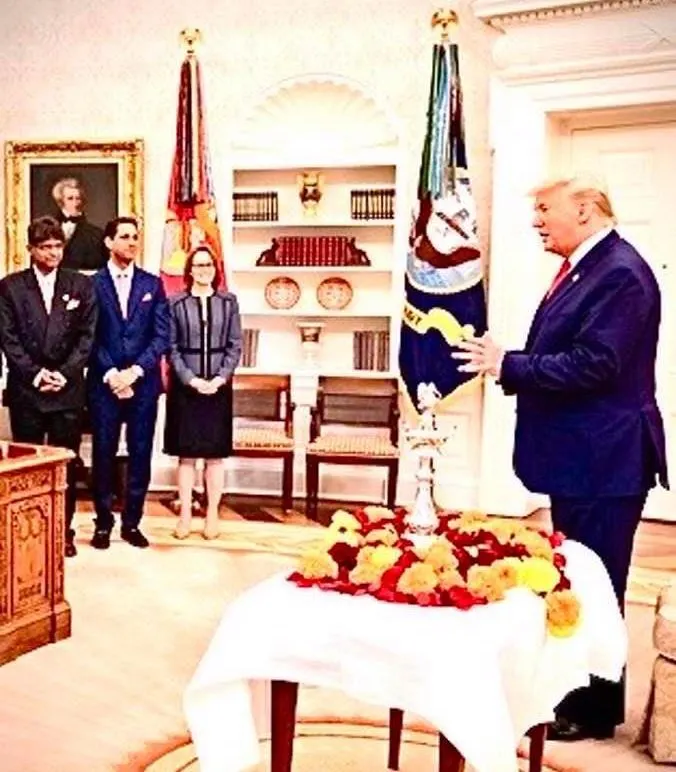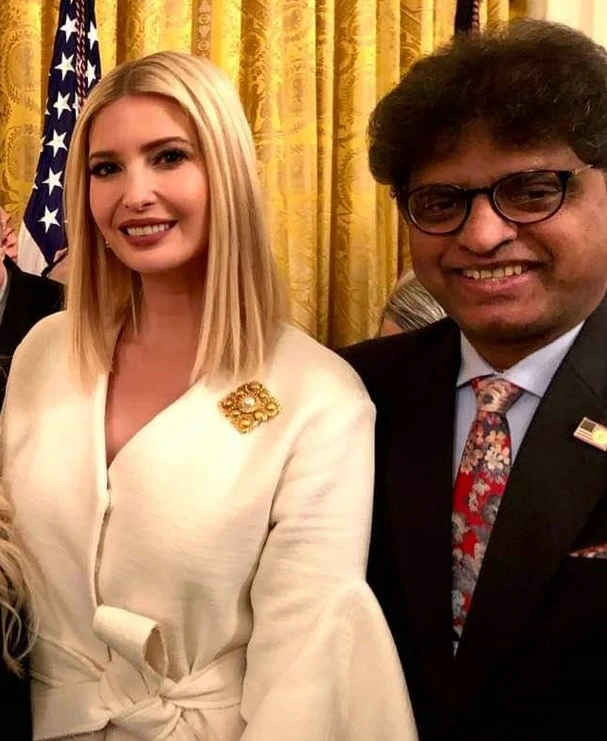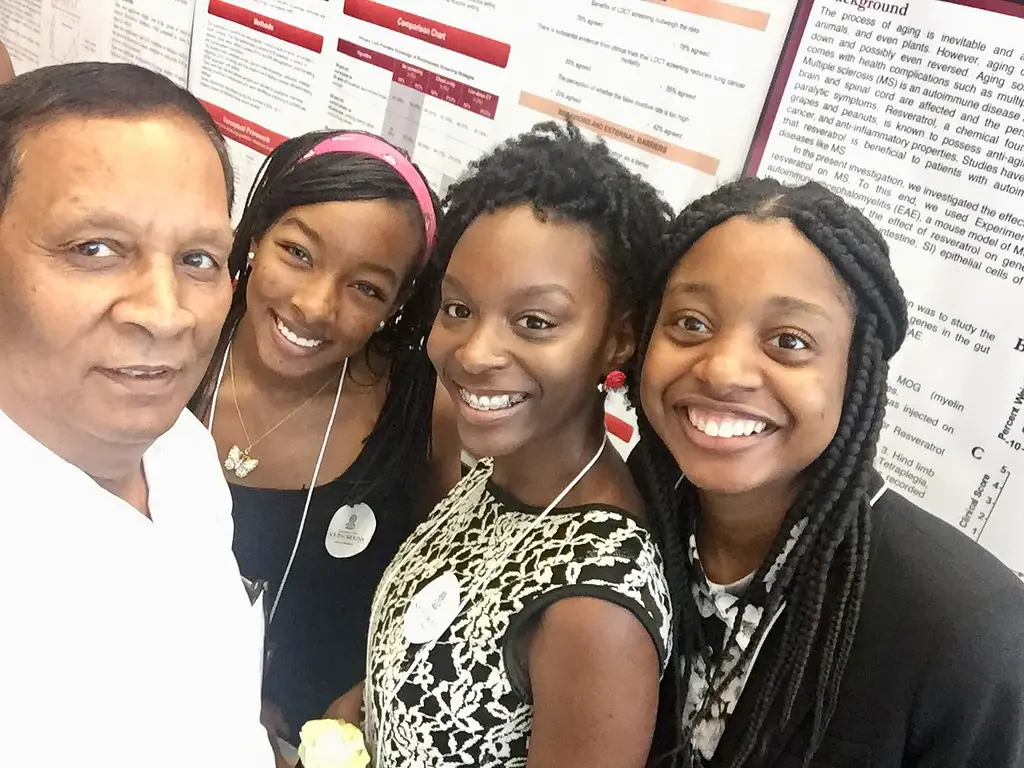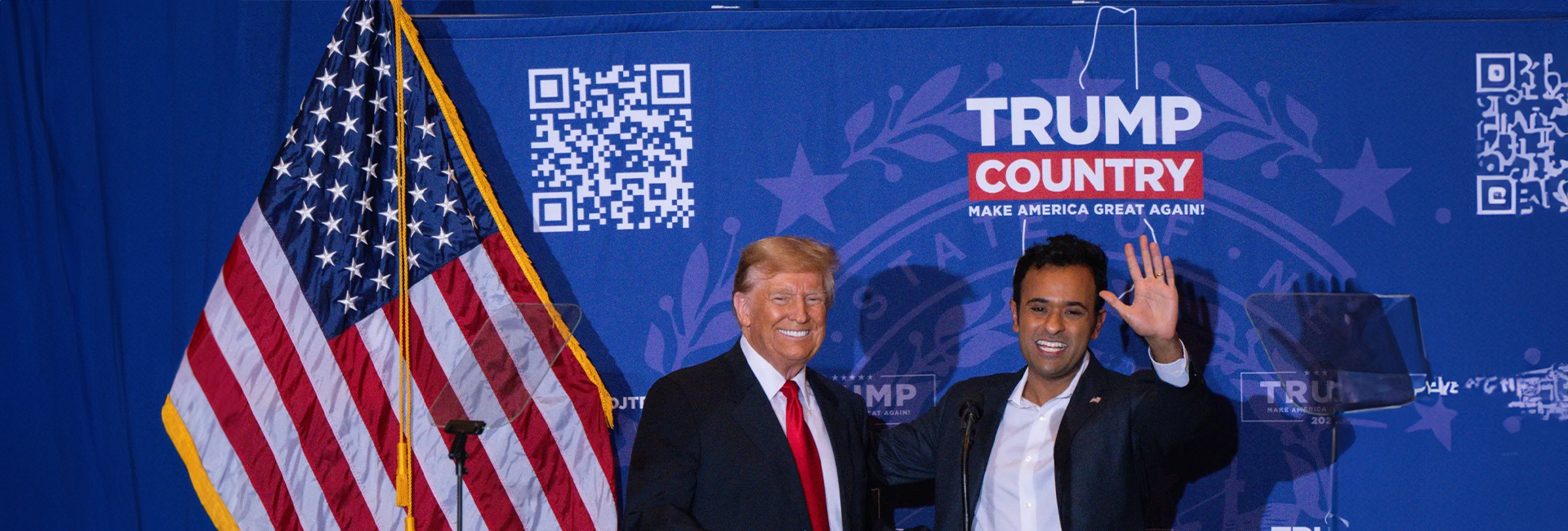(November 8, 2024) As the dust settles following Donald Trump’s re-election as President, Indian workers in the United States and aspiring immigrants back home in India are considering what this means for their future. To understand the potential impact of Trump’s policies, Global Indian reached out to two Indian Americans who bring a wealth of insight and experience. Harold D’Souza, a human trafficking survivor and former member of the U.S. Advisory Council on Human Trafficking who worked at the White House under both Obama and Trump, speaks from a human rights perspective. Narendra P. Singh, a professor and mentor of minority students at the University of South Carolina, offers a broader view on U.S.-India relations. This feature captures their insights along with editorial analysis, creating a comprehensive look at the implications of Trump’s policies on Indian workers, families, and communities.
Harold D’Souza: A voice of resilience and representation
Harold D’Souza’s perspective on Trump’s victory, particularly as an Indian American with experience on the United States Advisory Council on Human Trafficking, is both unique and layered. “Serving under the Trump administration brought a focused attention to combatting human trafficking, an issue that Trump is deeply passionate about, primarily through his work empowering ‘Survivors to Thrive’, he tells Global Indian. His role on the council allowed Harold to bring an immigrant’s perspective to policies impacting vulnerable populations, including those targeted by traffickers.

Harold D’Souza with President Donald Trump and other delegates at the White House during Trump’s previous term in office
As an Indian American and founder of the non-profit Eyes Open International, Harold values the importance of representation and the strength of diverse voices in American policymaking. Trump’s victory initially sparked mixed feelings within immigrant communities, as some policies created apprehension. However, for Harold, this was balanced by a shared dedication to the anti-trafficking mission. He found common ground in striving for policies that would create safer environments for exploited individuals, regardless of their nationality or background.
Harold’s journey on the advisory council revolved the need for bipartisan efforts to combat trafficking, showing that this cause transcends political divides. His experience reinforced his belief that real change comes from working collaboratively, focusing on humanitarian goals, and ensuring voices from all communities are heard.
Given Harold D’Souza’s experiences with Trump and regard for his leadership, Harold’s reflections on Trump’s victory take on an even more personal dimension. “I appreciate Trump’s commitment to supporting anti-trafficking initiatives during his tenure and recognize his unique leadership style, which brought attention to crucial human rights issues. Working under Trump allowed me to witness firsthand his drive to bring change in areas that affect vulnerable populations, especially human trafficking victims,” he mentions.

Harold with Ivanka Trump at the White House during Trump’s previous term as President
Trump’s support and leadership resonate with Harold, inspiring him to continue his work to prevent exploitation globally. This personal connection highlights the positive impact of a strong, focused leader in tackling one of the world’s most challenging issues. Harold remains grateful for Trump’s dedication to amplifying the fight against human trafficking, valuing both the understanding and the opportunities that arose from this shared mission.
Narendra P. Singh: U.S.-India relations in a new era
Narendra P. Singh, a professor at the University of South Carolina, shared his views on the renewed Trump administration from a geopolitical standpoint. Though Narendra is not personally a fan of Trump, he sees this victory as a potential boon for U.S.-India relations. “At present, Republicans are more accommodating to Indian causes. Traditionally, Republicans were more pro-Pakistan, but post–Cold War, U.S. foreign policy has changed, and it is more pro-India. Definitely, Indians living in the USA and their financial clout have played a significant role in changing the direction,” he says.
Narendra believes that the economic and strategic interests of Indian Americans will be safeguarded by the Trump administration. “At this juncture post–Trump win, I can only say that Indian interests will be safeguarded by Trump. He will be good for India.” His words highlight the growing influence of the Indian American community, whose presence and economic impact have helped steer U.S. foreign policy in favour of India.

Narendra P Singh with his American-African students at the University of South Carolina
The H-1B Visa debate: A narrowing window for Indian workers
For Indian professionals, the H-1B visa has long been the bridge to realizing the “American Dream.” This visa allows U.S. companies to employ foreign workers in specialized fields, particularly within technology, engineering, and STEM disciplines, and has thus fueled the dreams of thousands of Indian engineers, programmers, and scientists. However, this pathway may be shrinking. Trump’s previous term brought about a notable tightening of H-1B approvals, with a peak denial rate of 18%, up from around 3.2% during the Biden administration. Increased Requests for Evidence (RFEs) also reflected a stark change, making the visa process longer and more challenging. These restrictions hit hard in Indian communities, where the H-1B visa remains a popular route for skilled professionals to access American opportunities.
Trump’s return suggests that visa restrictions may continue, especially if his administration revives and strengthens the “Buy American and Hire American” policies. Trump’s philosophy on immigration prioritizes American jobs and promotes a more selective, merit-based visa system. Indian professionals could see a shift toward increased documentation, higher qualification thresholds, and perhaps further limitations on dependents who can accompany them on H-4 visas.
Impact on family-based immigration: Potential strains on family reunions
Family reunification has always been a priority for many Indians who have already established roots in the U.S. Through various family-based visas, these immigrants hope to bring their spouses, children, and parents to join them. However, Trump’s policies heavily favour merit over familial ties. The 2019 public charge rule, which sought to limit green cards to those who could financially support themselves, underscores Trump’s preference for an economically self-sufficient immigrant population.
The renewed administration may continue emphasizing skill-based visas, which focus on work contributions over family ties. This approach, while potentially alleviating the backlog of skilled immigration applications, might place added barriers to family reunification. Many Indian families are now uncertain about whether they will be able to reunite with their loved ones in the U.S., a concern heightened by the Trump administration’s rigorous vetting standards and possible restrictions on categories for extended family members.
Economic implications: Technology firms and job markets in flux
India has long been a powerhouse of tech talent, supplying skilled workers to U.S.-based giants like Google, Microsoft, and Amazon. These firms rely on Indian engineers and developers, whose skills and expertise contribute immensely to the industry. However, restrictive visa policies may prompt some U.S.-based companies to shift their focus to other countries with more liberal work visa regimes, or even invest in setting up operations in India, where they can tap into an equally skilled, yet locally based, workforce.
For Indian tech firms, the possibility of fewer visa approvals under Trump’s policies could mean a growing necessity to develop robust training and employment systems domestically. This shift might accelerate India’s efforts to strengthen its local tech industry and reduce its dependency on foreign markets for employment opportunities. While this may bring economic growth within India, it leaves Indian workers who aspired to work in the U.S. with potentially fewer prospects.
A divisive future: Balancing humanitarian efforts with economic policies
Trump’s firm stance on legal immigration versus illegal migration has drawn diverse opinions. While it is perceived by some as protecting American job opportunities, others argue that it hinders the influx of talent and hinders familial support networks for immigrants in the U.S. Harold D’Souza’s journey is an example of the importance of supporting immigrants’ human rights and highlights that there is an opportunity to bridge humanitarian work with economic policies. His experience highlights the importance of bipartisan efforts to address issues such as trafficking and labour exploitation.
For Harold, Trump’s leadership on anti-trafficking brought an empowering and focused approach to one of the world’s most pressing human rights issues. His continued advocacy, inspired by the Trump administration’s attention to human trafficking, serves as a reminder that focused leadership can bring positive change, even amidst restrictive policies. In this light, the Trump era may hold lessons on balancing immigrant rights with a more structured, merit-based immigration system that can still cater to economic and social justice needs.

Harold D’Souza during one of his anti human trafficking campaigns in the U.S.
Looking forward: The Indian American community’s resilience
As Indian workers and their families brace for another term under Trump, the future remains uncertain. The drive toward stringent visa requirements may reduce the flow of Indian talent to the United States. However, with a robust support system, an enduring commitment to humanitarian efforts, and an evolving global economy, Indian professionals and advocates are well-positioned to navigate these challenges. Harold D’Souza’s story of overcoming adversity and advocating for those trapped in exploitation serves as an inspiration. His work demonstrates that, even in challenging times, the human spirit’s resilience can thrive across borders, turning personal trials into powerful missions for change.
On the other hand, Narendra’s mentorship of minorities in the U.S. exemplifies the supportive networks that empower immigrant communities, offering hope and guidance as they adapt to shifting policies and pursue their American dreams.
To conclude, Trump’s victory brings complex implications for Indian workers, especially in fields where they have long contributed to the American economy. While the road ahead may pose additional hurdles, figures like Harold and Narendra remind us that the pursuit of justice, economic strength, and dignity in labour, regardless of immigration policies, continues to be a shared mission. Indian workers in the U.S. and those in India looking to make their mark abroad face an evolving landscape.
- Follow Harold D Souza and Narendra P Singh on LinkedIn
- Explore engaging feature stories at Global Indian





Looks like some win some loose like situation for Indian aspirants who are hoping to get employment opportunities in USA. It’s important to see how Indian PM Mr Modi will tackle this issue .